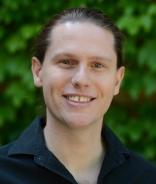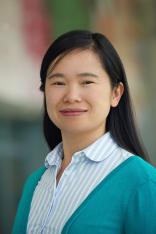Our Scholars
Pierre Apostolides, Ph.D.
Hearing disorders afflict ~12-20% of the population, are associated with depression, and are a major modifiable risk factor for dementia. Given the need for treatments of hearing disorders, a mechanistic understanding of the central auditory system is necessary to identify the extent to which new therapies may be able to restore the brain's ability to encode sound. We address these issues by studying the physiology of central auditory circuits. Our goal is to provide mechanistic and generalizable explanations for how the nervous system extracts meaningful sensory information from the outside world.
We want to understand: To what extent does "higher-order", predictive information control central auditory function? How do neurons extract meaningful information from noisy or ambiguous sensory signals? How is information routed from the auditory system to motor and action selection pathways? What are the cellular mechanisms governing synaptic plasticity in models of hearing disorders?
Idse Heemskerk, Ph.D.
Our goal is to understand how human pluripotent stem cells generate and interpret the chemical and physical signals that allow them to self-organize into spatial structures consisting of multiple cell types in vitro, and, by extension to the embryo, in vivo. By combining quantitative live-cell measurements and engineering tools such as micropatterning with predictive mathematical models we can answer currently intractable questions in developmental and stem cell biology.
Wenjing Wang, Ph.D.
My lab focuses on engineering novel molecular tools with widespread utility across multiple subfields of cell biology and neuroscience. In particular, we are interested in designing 1) genetically encoded tools for labeling neuronal circuits underlying different behaviors; 2) optogenetic tools for manipulating the functions of endogenous proteins; and 3) fluorescent sensors of analytes or cell-signaling events. We will utilize cutting edge protein engineering methods, such as directed evolution and high-throughput screening, to optimize the overall performance of the tools. Various model systems including mammalian cell culture, neuronal culture and mice will be utilized to test the performance of the tools.
Swathi Yadlapalli, Ph.D.
Our research focuses on understanding the neural and molecular basis of circadian rhythms. Circadian rhythms are 24-hour oscillations in behavior and physiology that are generated by endogenous clocks found in a majority of living organisms. The disruption of clocks has been linked to many human pathologies including diabetes, cancer and neurodegenerative diseases. Our goal is to understand the fundamental processes of circadian systems at different organizational levels, from molecules and cells and large-scale networks to organismal physiology and behavior. We use the Drosophila circadian system as it provides an ideal platform because it has a clock system that is highly conserved from flies to humans, superb genetic and neural activity monitoring tools, along with robust behavioral paradigms. We propose to build an interdisciplinary research program spanning the fields of circadian clocks, cell biology, neuroscience, and engineering to gain a rich, multi-level understanding of how circadian clocks are regulated in the fruit fly with the long-term goal of a deeper understanding of the human circadian clocks and ultimately discover new therapeutic targets in the treatment of human malignancies.




